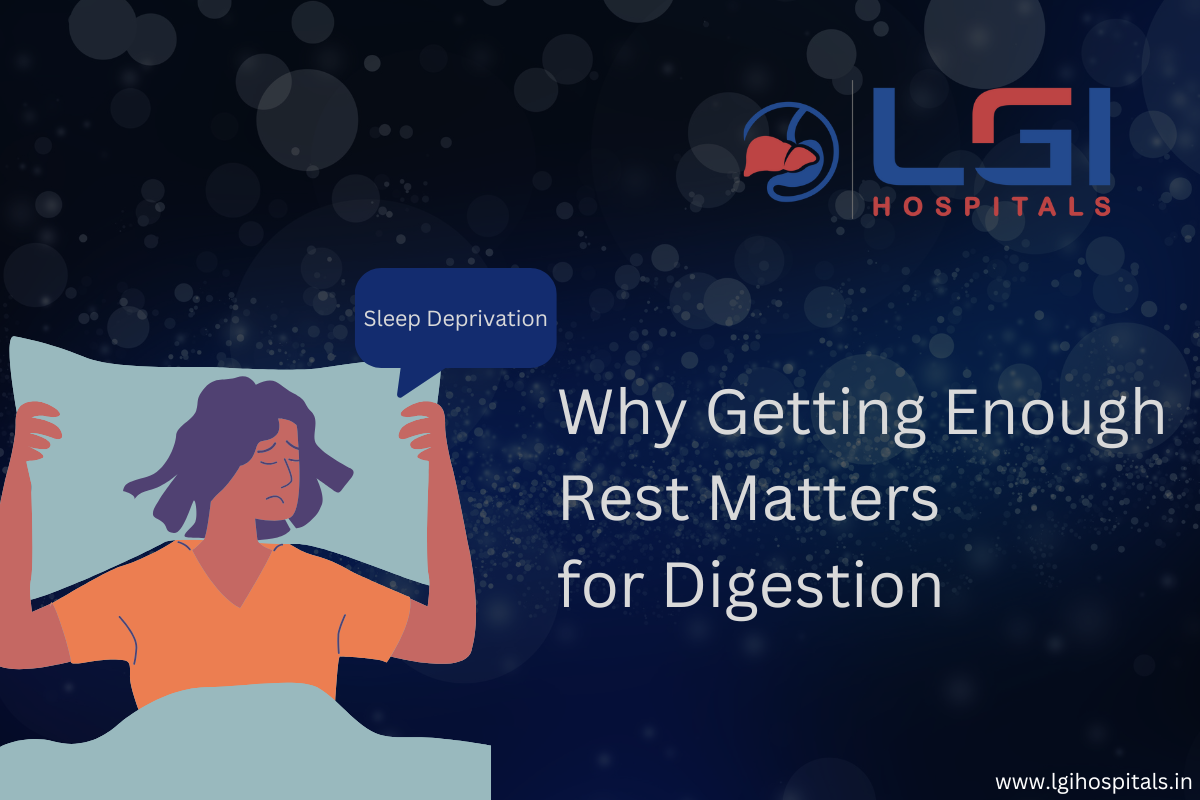We’ve all heard that a good night’s sleep is crucial for overall health, but did you know that it also plays a significant role in maintaining a healthy gut? Recent studies have uncovered a fascinating connection between sleep deprivation and gut health, showing how poor sleep can disrupt your digestive system in unexpected ways.
In this blog, we’ll explore how a lack of sleep affects your gut, the gut-sleep connection, and how prioritizing rest can improve digestion and overall well-being.
1. The Gut-Sleep Connection: Understanding the Link
Your gut and brain are in constant communication through what’s known as the gut-brain axis.
This complex system allows signals to travel between the digestive system and the brain, influencing everything from your mood to your immune system.
Research shows that sleep and gut health are deeply intertwined—when you’re sleep-deprived, this communication is disrupted, leading to a series of digestive issues.
The gut is home to trillions of bacteria that make up your gut microbiome, which plays a crucial role in digestion,
metabolism, and immune function. A healthy microbiome is essential for breaking down food, absorbing nutrients, and protecting against harmful pathogens.
When you don’t get enough sleep, the balance of these bacteria can be thrown off, leading to digestive problems.
2. How Lack of Sleep Affects Gut Health
Several mechanisms explain how sleep deprivation can harm gut health:
Imbalance in Gut Bacteria: Sleep deprivation can alter the composition of your gut microbiome, favoring harmful bacteria over beneficial ones.
This imbalance can lead to inflammation, digestive discomfort, and even conditions like irritable bowel syndrome (IBS).
Reduced Production of Digestive Enzymes: Sleep plays a vital role in the production of enzymes needed to break down food.
When you don’t get enough rest, your body’s ability to properly digest food can be compromised, leading to bloating, indigestion, and other digestive issues.
Increased Stress and Gut Sensitivity: Lack of sleep can increase stress levels and the production of the hormone cortisol, which has been shown to negatively affect gut health.
High cortisol levels can lead to an overactive gut, contributing to symptoms like heartburn, constipation, or diarrhea.
Weakened Gut Barrier Function: The gut barrier is responsible for keeping harmful bacteria and toxins from entering your bloodstream.
Sleep deprivation weakens this barrier, making it easier for pathogens to pass through, potentially leading to leaky gut syndrome and inflammation.
3. How Poor Gut Health Can Affect Sleep
Interestingly, the relationship between sleep and gut health is bidirectional—poor gut health can also contribute to sleep problems.
An imbalanced microbiome can lead to disruptions in the production of serotonin, a neurotransmitter that helps regulate sleep.
About 90% of serotonin is produced in the gut, so when your digestive system is out of balance, it can negatively affect your sleep quality, creating a cycle of poor sleep and gut issues.
Conditions like gastroesophageal reflux disease (GERD), IBS, and other gut disorders can also disrupt sleep, causing discomfort or pain at night and making it harder to fall or stay asleep.
4. The Role of Sleep in Digestive Health
Getting enough sleep is one of the most effective ways to support your digestive system. Here’s how proper rest can improve gut health:
- Restores Balance in the Gut Microbiome: Consistent, quality sleep helps restore a healthy balance of gut bacteria, supporting better digestion and overall health.
- Reduces Inflammation: Adequate sleep helps reduce inflammation in the gut, which is essential for maintaining the integrity of the gut lining and preventing conditions like leaky gut.
- Enhances Nutrient Absorption: Sleep supports the proper functioning of digestive enzymes, which are essential for breaking down and absorbing nutrients from food. This can improve your overall energy levels and well-being.
- Improves Gut Motility: Sleep regulates the smooth muscle contractions in the intestines that move food through the digestive tract, helping to prevent issues like constipation.
5. Tips for Improving Both Your Sleep and Gut Health
If you’re struggling with sleep deprivation and digestive problems, here are some actionable steps you can take to improve both:
Stick to a Sleep Schedule: Try to go to bed and wake up at the same time every day, even on weekends.
Consistency helps regulate your body’s internal clock and improves sleep quality.
Practice Relaxation Techniques: Techniques like deep breathing, meditation, and yoga can reduce stress and promote better sleep. Reducing stress can also benefit your gut health by lowering cortisol levels.
Eat Gut-Healthy Foods: Focus on a balanced diet rich in fiber, probiotics, and prebiotics, which support a healthy gut microbiome.
Fermented foods like yogurt, kefir, and kimchi can improve gut flora, while fiber-rich foods like fruits,
vegetables, and whole grains promote healthy digestion.
Limit Caffeine and Alcohol: Both caffeine and alcohol can interfere with sleep and disrupt your gut microbiome.
Try to limit these, especially in the hours leading up to bedtime.
Exercise Regularly: Regular physical activity can improve both sleep and gut health by promoting digestion and reducing stress.
Just make sure to avoid intense exercise close to bedtime, as it can have the opposite effect.
Create a Sleep-Friendly Environment: Make your bedroom a restful sanctuary by keeping it dark, quiet, and cool.
Avoid electronic devices before bed, as the blue light emitted can interfere with your body’s ability to fall asleep.
6. Conclusion: Prioritize Sleep for Better Gut Health
The connection between sleep deprivation and gut health is clear—poor sleep can disrupt the delicate
balance of bacteria in your gut, leading to digestive problems and overall health issues.
On the flip side, improving your sleep can help restore this balance, reduce inflammation, and enhance digestion.
By prioritizing good sleep hygiene and adopting habits that support both your sleep and gut health, you can break the cycle of poor rest and digestive discomfort.
If you’ve been struggling with sleep deprivation or digestive issues, it may be time to make sleep a priority in your health journey. Not only will it help you feel better rested, but it could also lead to a healthier, happier gut.

